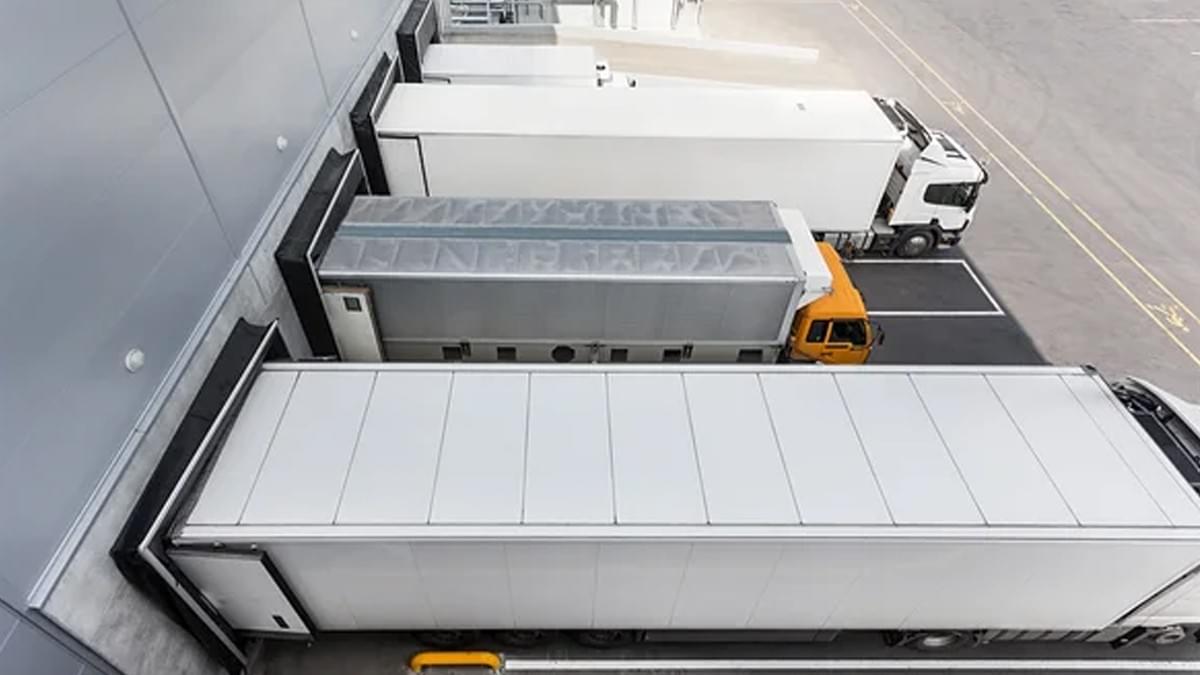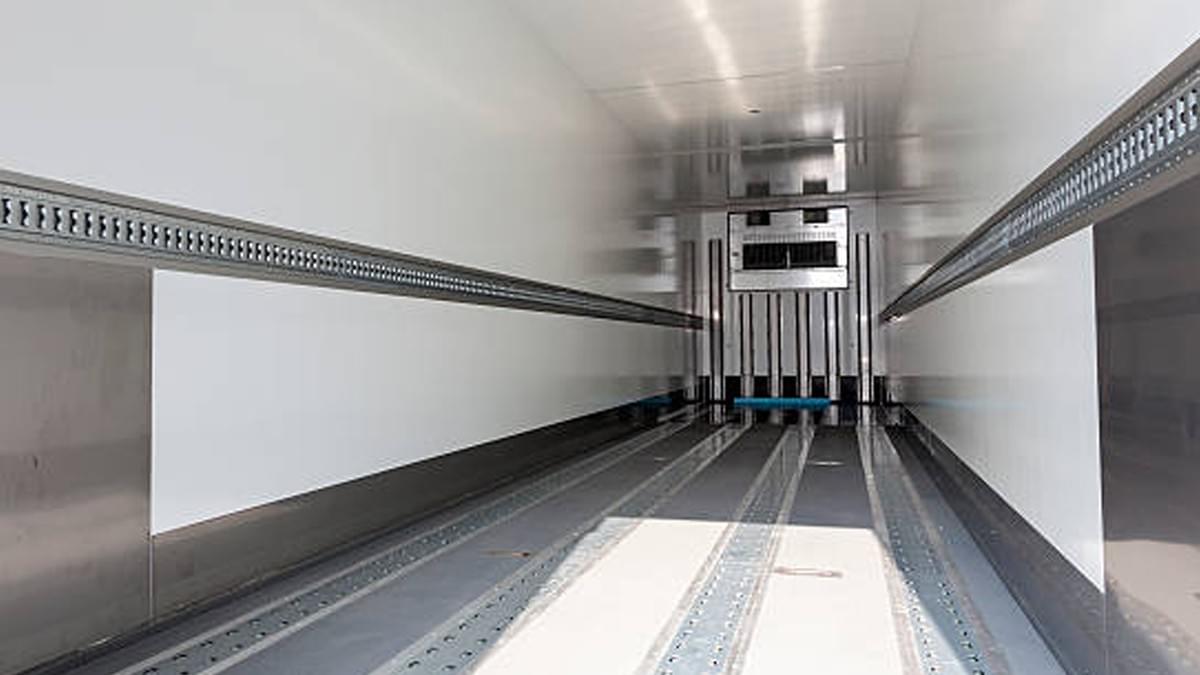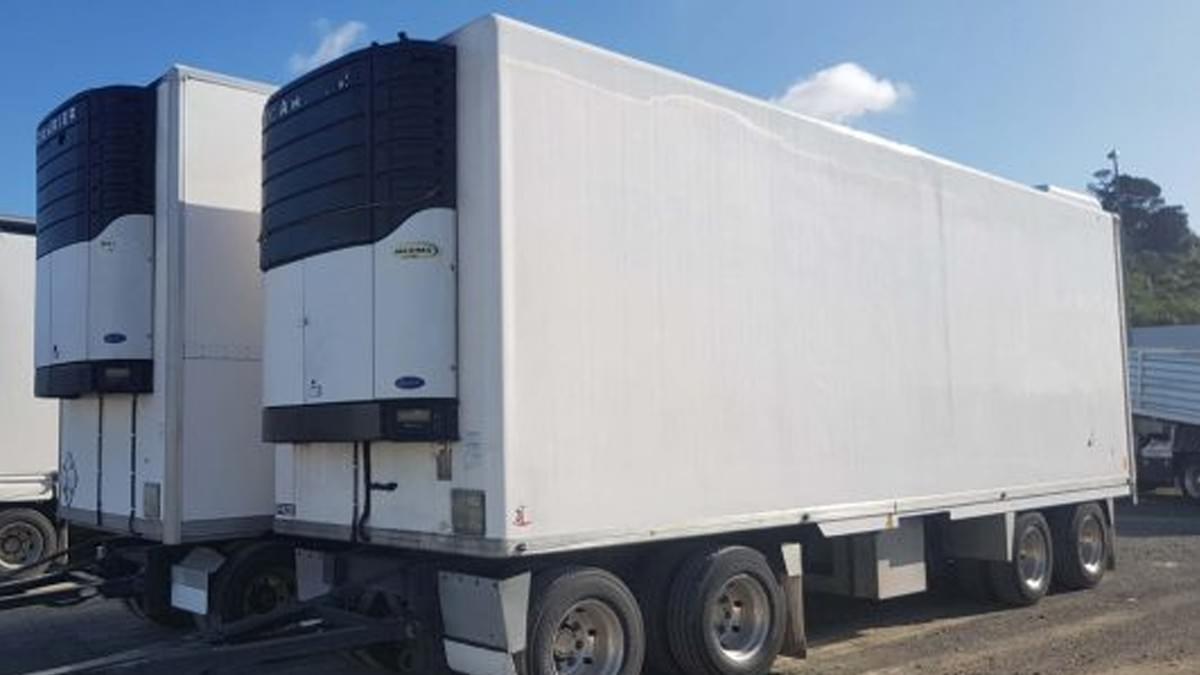A refrigerator for tractor trailer is an essential piece of equipment for long-haul truck drivers, keeping food, drinks, and medications fresh during extended trips away from home. Without a reliable refrigerator for tractor trailer, drivers would be forced to rely on expensive, unhealthy fast food or risk consuming spoiled items, which can lead to fatigue, illness, and reduced productivity. In this comprehensive guide, we’ll explore everything about a refrigerator for tractor trailer: types, features, benefits, how to choose the right one, maintenance tips, top brands, and why investing in a quality model is a smart decision for any professional driver. Whether you’re a seasoned trucker, a fleet manager, or someone considering a career in long-haul driving, this guide will equip you with the knowledge to select and maintain a refrigerator for tractor trailer that meets your needs.
What Is a Refrigerator for Tractor Trailer?
A refrigerator for tractor trailer is a compact, durable cooling appliance designed specifically for the unique environment of a semi-truck cab. Unlike residential refrigerators, which rely on stable electricity and a fixed position, a refrigerator for tractor trailer must withstand constant vibration, temperature fluctuations, and limited space. These units are engineered to operate on the truck’s 12V or 24V electrical system, ensuring they can run while the truck is moving or idling.
The primary purpose of a refrigerator for tractor trailer is to preserve perishable items, such as meats, dairy, fruits, vegetables, and beverages, at safe temperatures (typically 34–40°F) for days or even weeks. This allows drivers to prepare healthy meals on the road, saving money on restaurant stops and reducing the risk of diet-related health issues. Additionally, a refrigerator for tractor trailer can store medications that require refrigeration, such as insulin, making it a critical tool for drivers with medical needs.
Refrigerator for tractor trailer models vary in size, capacity, and features, but all share key design elements: a rugged exterior to resist damage from shifting cargo or daily use, efficient insulation to maintain temperature in extreme cab conditions, and low power consumption to avoid draining the truck’s battery. Some advanced models also include freezers, adjustable temperature controls, and energy-saving modes, catering to the diverse needs of truck drivers.
Types of Refrigerator for Tractor Trailer
Refrigerator for tractor trailer units come in several types, each designed to address specific needs, such as space constraints, cooling power, and power source availability. Here’s a breakdown of the most common types:
12V/24V Electric Refrigerator for Tractor Trailer
The most popular type, 12V/24V electric refrigerators for tractor trailer, run directly off the truck’s electrical system. They are lightweight, compact, and easy to install, making them ideal for most semi-truck cabs.
- Power Source: Plugs into the truck’s cigarette lighter or a dedicated 12V/24V outlet. Some models include dual voltage compatibility, switching between 12V (for smaller trucks) and 24V (for heavy-duty semis).
- Capacity: Ranges from 1.1 cubic feet (30 liters) to 3.0 cubic feet (85 liters), with most drivers opting for 1.5–2.0 cubic feet to balance storage and space.
- Cooling Technology: Uses thermoelectric or compressor-based cooling. Thermoelectric models are quieter and more affordable but less efficient in extreme temperatures. Compressor models offer stronger cooling (down to 0°F) and better performance in hot or cold environments.
- Best For: Daily use, storing meals, beverages, and medications. Suitable for drivers who spend 3–7 days on the road at a time.
Propane-Powered Refrigerator for Tractor Trailer
Less common but useful for off-grid situations, propane-powered refrigerators for tractor trailer rely on propane gas for cooling. They are a backup option when electrical power is unavailable.
- Power Source: Propane canisters (small, portable tanks) that fit under or behind the unit.
- Capacity: Similar to electric models (1.0–2.5 cubic feet) but bulkier due to the propane storage.
- Cooling Technology: Uses absorption cooling, which is silent but less efficient than compressor systems.
- Best For: Drivers who frequently park in areas without access to electricity (e.g., remote job sites) or as a backup to electric models during power outages.
Combination Refrigerator-Freezer for Tractor Trailer
These units feature a separate freezer compartment, allowing drivers to store frozen foods (e.g., pre-cooked meals, ice cream) alongside refrigerated items.
- Design: A small freezer section (0.3–0.8 cubic feet) within the main refrigerator, separated by a partition.
- Cooling: Compressor-based systems are standard here, as they can achieve freezer temperatures (-5°F to 5°F) while keeping the fridge section at 34–40°F.
- Best For: Drivers who want to stock up on frozen meals or need to keep ice for beverages.
Ultra-Compact Refrigerator for Tractor Trailer
For truck cabs with limited space (e.g., day cabs or smaller sleeper cabs), ultra-compact refrigerators for tractor trailer are designed to fit in tight spots, such as under the bunk or between seats.
- Capacity: 0.5–1.0 cubic feet, enough for a few meals, snacks, and drinks.
- Features: Lightweight (under 20 pounds) and low-profile, with simple on/off controls.
- Best For: Day drivers or those with minimal storage needs who still want to avoid fast food.

Key Features of a High-Quality Refrigerator for Tractor Trailer
When shopping for a refrigerator for tractor trailer, certain features are non-negotiable for performance, durability, and convenience. Here’s what to look for:
Efficient Cooling System
The core of any refrigerator for tractor trailer is its cooling system. Compressor-based systems are superior for long-haul drivers because they:
- Maintain consistent temperatures even in extreme cab heat (up to 120°F) or cold (below freezing).
- Cool quickly, reaching 34°F from room temperature in 1–2 hours.
- Can handle larger loads without losing cooling power.
Thermoelectric systems are better for short trips or mild climates but may struggle to keep items cold in hot weather.
Low Power Consumption
A refrigerator for tractor trailer should use minimal electricity to avoid draining the truck’s battery, especially when idling or parked. Look for models with:
- Energy Star certification or low wattage (50–80 watts for compressor units).
- Automatic low-voltage protection, which shuts off the unit if the battery voltage drops below a safe level (typically 11.5V for 12V systems).
- Eco-mode or energy-saving settings that reduce power use when cooling isn’t actively needed.
Durable Construction
Truck cabs are harsh environments, so a refrigerator for tractor trailer must be built to last. Key durability features include:
- Rugged, impact-resistant exterior (ABS plastic or stainless steel).
- Secure door latches to prevent opening during bumpy rides.
- Vibration-resistant internal components (e.g., reinforced shelves, shock-absorbing mounts).
- Weatherproofing to resist spills and moisture from rain or snow.
Adjustable Temperature Controls
Every driver has different needs, so a refrigerator for tractor trailer with adjustable temperatures (32–50°F) allows customization for:
- Storing delicate items (e.g., fruits need 40°F, while meats need 34°F).
- Switching between fridge and freezer modes (in combination units).
- Adapting to seasonal changes (colder settings in summer, slightly warmer in winter).
Spacious, Organized Interior
A well-designed interior maximizes storage in a small space. Look for:
- Removable, adjustable shelves to fit tall bottles or large containers.
- Door bins for drinks, condiments, or small snacks.
- A crisper drawer for fruits and vegetables (to maintain humidity).
- LED lighting to easily see contents in a dark cab.
Easy Installation and Portability
Most drivers install their refrigerator for tractor trailer themselves, so simplicity is key:
- Plug-and-play design with a long power cord (6–10 feet) to reach the truck’s outlet.
- Mounting options (e.g., brackets or straps) to secure the unit during transit.
- Lightweight design (under 40 pounds for mid-sized models) for easy moving.
Quiet Operation
A noisy refrigerator for tractor trailer can be distracting during long drives or while resting. Compressor units are louder than thermoelectric ones, but quality models include:
- Noise-dampening insulation.
- Low-vibration compressors (under 40 decibels, similar to a quiet conversation).
Benefits of Using a Refrigerator for Tractor Trailer
Investing in a refrigerator for tractor trailer offers numerous advantages for drivers, fleet managers, and even trucking companies. Here’s why they’re a worthwhile purchase:
Saves Money
Long-haul drivers spend an average of \(50–\)80 per day on restaurant meals. A refrigerator for tractor trailer allows drivers to prepare food from home or grocery stores, cutting food costs by 50–70%. Over a year, this can save \(10,000 or more—easily justifying the cost of a \)300–$800 unit.
Promotes Healthier Eating
Fast food and gas station snacks are high in fat, salt, and sugar, contributing to obesity, high blood pressure, and diabetes—common issues among long-haul drivers. A refrigerator for tractor trailer lets drivers store fresh fruits, vegetables, lean proteins, and homemade meals, supporting a balanced diet and reducing the risk of diet-related illnesses.
Increases Convenience
With a refrigerator for tractor trailer, drivers can:
- Grab a cold drink or snack without stopping.
- Prepare meals in advance and reheat them in a truck microwave (if available).
- Store medications safely, avoiding the need to find pharmacies on the road.
Reduces Downtime
Stopping for food adds 30–60 minutes to a driver’s day. A refrigerator for tractor trailer minimizes these stops, allowing drivers to stay on schedule and maximize driving hours—beneficial for meeting delivery deadlines and increasing earnings.
Boosts Morale
Eating well and having access to familiar foods improves driver satisfaction and mental health. A refrigerator for tractor trailer makes life on the road more comfortable, reducing stress and increasing job retention— a key benefit for fleet managers struggling with driver shortages.

How to Choose the Right Refrigerator for Tractor Trailer
Selecting the best refrigerator for tractor trailer depends on your specific needs, budget, and truck setup. Follow these steps to make an informed decision:
Step 1: Assess Your Storage Needs
- Duration of Trips: Drivers on 1–3 day trips need 1.0–1.5 cubic feet. Those on 7+ day trips need 2.0–3.0 cubic feet.
- Food Types: If you eat frozen meals, a combination fridge-freezer is necessary. For fresh produce, prioritize a model with a crisper drawer.
- Number of People: Solo drivers can manage with 1.5 cubic feet. Teams or drivers sharing a cab may need 2.5+ cubic feet.
Step 2: Measure Your Truck’s Space
Truck cabs vary in size, so measure the area where you plan to place the refrigerator for tractor trailer:
- Width, Height, Depth: Ensure there’s enough room for the unit, plus clearance for the door to open fully.
- Location: Common spots include under the sleeper bunk, between the seats, or in a storage compartment. Avoid areas exposed to direct sunlight or extreme heat (e.g., near the engine).
Step 3: Decide on Power Source
- 12V/24V Electric: Best for most drivers, as it uses the truck’s existing power. Check your truck’s voltage (12V or 24V) to match the model.
- Propane: Only consider if you frequently lack access to electricity. Note that propane canisters require safe storage and may be restricted in some areas.
Step 4: Compare Cooling Technologies
- Compressor: Choose for long trips, extreme temperatures, or large storage needs. Expect to pay \(400–\)800.
- Thermoelectric: Suitable for short trips, mild climates, or tight budgets (\(150–\)300).
Step 5: Evaluate Key Features
Prioritize features based on your needs:
- Must-Haves: Low power consumption, durable construction, adjustable temperatures.
- Nice-to-Haves: Freezer compartment, LED lighting, removable shelves.
Step 6: Set a Budget
Refrigerator for tractor trailer prices range from \(150 (basic thermoelectric) to \)1,000+ (high-end compressor models with freezers). Set a budget that balances quality and features—remember, a durable unit will last 5–7 years, making it a long-term investment.
Installation Tips for Refrigerator for Tractor Trailer
Proper installation ensures your refrigerator for tractor trailer operates safely and efficiently. Follow these steps:
Choose the Right Location
- Avoid Heat Sources: Keep the unit away from the engine, heater vents, or direct sunlight, as heat forces the compressor to work harder.
- Allow Airflow: Leave 2–3 inches of space around the unit for ventilation, preventing overheating.
- Stability: Place the refrigerator for tractor trailer on a flat, level surface to ensure proper cooling and prevent spills.
Secure the Unit
Truck vibrations can damage the refrigerator for tractor trailer or cause it to tip over. Secure it using:
- Mounting brackets (screwed into the truck’s floor or wall, if allowed by the manufacturer).
- Heavy-duty straps (ratchet straps work well) attached to anchor points in the cab.
- Anti-slip mats under the unit to prevent sliding.
Connect to Power Safely
- Use the truck’s dedicated 12V/24V outlet or a cigarette lighter. Avoid overloading the circuit with other devices (e.g., microwaves, chargers).
- Ensure the power cord is routed away from foot traffic or moving parts (e.g., seat rails) to prevent damage.
- For hardwiring (recommended for permanent installation), hire a professional to connect the unit to the truck’s electrical system, ensuring compliance with safety standards.
Test the Unit
Before hitting the road:
- Plug in the refrigerator for tractor trailer and set it to 38°F.
- Monitor the temperature for 24 hours to ensure it stays consistent.
- Check for unusual noises or vibrations, which could indicate installation issues.
Maintenance Tips for Refrigerator for Tractor Trailer
Proper maintenance extends the lifespan of your refrigerator for tractor trailer and ensures it operates efficiently. Follow these guidelines:
Daily Maintenance
- Check Temperature: Verify the refrigerator for tractor trailer is holding the set temperature (34–40°F for fridge, 0°F or below for freezer). Use a separate thermometer to confirm accuracy, as built-in gauges can drift over time.
- Inspect Door Seal: Ensure the door closes tightly and the rubber seal is clean and intact. A loose or dirty seal allows cold air to escape, forcing the unit to work harder.
- Remove Spills Immediately: Wipe up spills with a mild detergent to prevent odors and mold growth. Avoid harsh chemicals (e.g., bleach) that can damage interior surfaces.
Weekly Maintenance
- Clean Interior: Empty the refrigerator for tractor trailer, remove shelves and bins, and wash them with warm, soapy water. Wipe down the interior walls and door with a damp cloth.
- Check Power Cord: Inspect the cord for fraying, cuts, or damage. If damaged, replace it immediately to avoid electrical hazards.
- Clear Vents: Dust or debris can block the cooling vents (located on the back or sides of the unit), reducing efficiency. Use a soft brush or compressed air to clean them.
Monthly Maintenance
- Defrost Freezer Section: If your refrigerator for tractor trailer has a manual defrost freezer, defrost it when ice buildup exceeds 1/4 inch. Turn off the unit, remove food, and let ice melt naturally (or use a plastic scraper—avoid metal tools that can damage the interior).
- Check Mounting: Ensure the unit is still securely mounted or strapped down. Tighten brackets or straps if loose, as vibrations can loosen connections over time.
Seasonal Maintenance
- Deep Clean Before Long Trips: Thoroughly clean the refrigerator for tractor trailer, check all seals, and test cooling performance to avoid issues on the road.
- Store Properly During Downtime: If the unit won’t be used for weeks (e.g., during a break), empty it, clean it, and leave the door open slightly to prevent mold. Unplug it and store in a dry, cool place.

Troubleshooting Common Issues with Refrigerator for Tractor Trailer
Even with proper maintenance, a refrigerator for tractor trailer may encounter problems. Here are solutions to common issues:
Unit Isn’t Cooling
- Check Power Source: Ensure the plug is securely inserted into the outlet. Test the outlet with another device (e.g., a phone charger) to confirm it’s working.
- Low Voltage: If the truck’s battery is low, the refrigerator for tractor trailer may shut off to protect the battery. Start the truck to charge the battery, then reset the unit.
- Dirty Vents: Blocked vents reduce cooling. Clean them as described in the maintenance section.
- Door Seal Issues: A damaged or dirty seal allows cold air to escape. Clean the seal with warm water; replace it if torn or cracked.
Excessive Noise
- Vibration: The unit may be loose, causing rattling. Secure it with tighter straps or brackets.
- Compressor Noise: Some humming is normal, but loud knocking or grinding may indicate a failing compressor. Contact the manufacturer for repairs under warranty.
- Uneven Surface: If the refrigerator for tractor trailer is on an uneven surface, it may vibrate more. Adjust the location to a flat area.
Battery Drain
- Power-Hungry Settings: Running the unit at the coldest setting or using the freezer heavily increases power use. Adjust to a warmer setting if possible.
- Faulty Low-Voltage Protection: If the unit doesn’t shut off when voltage drops, it may drain the battery. Contact the manufacturer to repair or replace the protection system.
- Old Battery: A weak truck battery may struggle to power the refrigerator for tractor trailer. Test the battery and replace it if needed.
Odors
- Spoiled Food: Remove expired items and clean the interior with a solution of 1 part baking soda to 3 parts water to neutralize odors.
- Mold Growth: If the unit was stored with the door closed, mold may form. Clean with a vinegar solution (1 part vinegar to 1 part water) and leave the door open to air out.
How to Extend the Life of Your Refrigerator for Tractor Trailer?
With proper care, a quality refrigerator for tractor trailer can last 5–7 years. Here are tips to maximize its lifespan:
Avoid Overloading
Overpacking the refrigerator for tractor trailer blocks airflow, forcing the compressor to work harder. Leave space between items for cold air circulation.
Use Insulated Bags or Containers
Storing food in insulated containers helps maintain cold temperatures, reducing the unit’s workload. This is especially useful when opening the door frequently.
Keep It Away from Heat
Parking in direct sunlight or placing the unit near the truck’s heater increases the temperature inside the cab, making the refrigerator for tractor trailer work harder. Use sunshades or park in the shade when possible.
Don’t Unplug It Unnecessarily
Constantly plugging and unplugging the unit can stress the electrical components. If parking for a few hours, keep it running—modern models use minimal power when idling.
Follow the Manufacturer’s Guidelines
Adhere to the manufacturer’s recommendations for temperature settings, maintenance, and weight limits. Using the refrigerator for tractor trailer outside its intended parameters can shorten its life.
Cost Analysis: Is a Refrigerator for Tractor Trailer Worth It?
To determine if a refrigerator for tractor trailer is a smart investment, let’s break down the costs and savings:
Initial Cost
- Basic thermoelectric model: \(150–\)300
- Mid-range compressor model: \(400–\)600
- High-end fridge-freezer: \(700–\)1,000
Annual Operating Costs
- Electricity: Minimal, as most models use 50–80 watts. At average truck idling power costs, this amounts to \(20–\)50 per year.
- Maintenance: Replacement parts (e.g., door seals, shelves) are inexpensive (\(10–\)50). Professional repairs are rare if maintained properly.
Annual Savings
- Reduced food costs: Drivers who use a refrigerator for tractor trailer save \(50–\)80 per day on meals. Over 250 workdays, this equals \(12,500–\)20,000 in savings.
- Reduced downtime: Fewer food stops save 30–60 minutes per day, increasing driving time and potential earnings.
Return on Investment (ROI)
Even a high-end refrigerator for tractor trailer (\(1,000) pays for itself in 1–2 months of food savings. Over 5 years, the total savings could exceed \)50,000—making it one of the best investments a long-haul driver can make.

Where to Buy a Refrigerator for Tractor Trailer
Refrigerator for tractor trailer units are available from several retailers, both online and in-store. Here are the best options:
Online Retailers
- Amazon: Offers a wide selection of brands (Dometic, Engel, Whynter) with customer reviews, fast shipping, and easy returns. Many models qualify for Prime delivery.
- TruckPro: Specializes in trucking equipment, including refrigerators for tractor trailer. Offers expert advice and financing options for fleet managers.
- eBay: Good for finding used or refurbished models at a discount, though warranties may be limited.
- Manufacturer Websites: Direct purchases from Dometic, Engel, or ARB often include extended warranties and exclusive deals.
In-Store Retailers
- Truck Stops: Major chains like Pilot Flying J, Love’s, and TA carry basic models (thermoelectric and small compressors) for immediate purchase.
- RV Dealers: Stores like Camping World stock mobile refrigerators, including those suitable for tractor trailers. Staff can provide hands-on demonstrations.
- Auto Parts Stores: Some NAPA or AutoZone locations carry 12V refrigerators, though selection is limited compared to truck-specific retailers.
Fleet Suppliers
Fleet managers can buy in bulk from suppliers like:
- Penske Truck Leasing: Offers refrigerators for tractor trailer as part of their truck accessory packages.
- Ryder: Provides bulk discounts and installation services for fleet-wide purchases.
Frequently Asked Questions (FAQs) About Refrigerator for Tractor Trailer
Q: Can a refrigerator for tractor trailer run while the truck is off?
A: Most models can run for 8–12 hours on a fully charged truck battery, but this depends on battery capacity and the unit’s power consumption. Use low-voltage protection to prevent draining the battery completely.
Q: How cold should a refrigerator for tractor trailer get?
A: The fridge section should stay between 34–40°F to keep food safe. Freezer sections (in combination units) should be 0°F or below for frozen foods.
Q: Can I use a residential mini-fridge in my tractor trailer?
A: No. Residential mini-fridges are designed for 110V power and can’t handle truck vibrations or temperature extremes. They also lack low-voltage protection, risking battery drain.
Q: How much space do I need for a refrigerator for tractor trailer?
A: Compact models (0.5–1.0 cubic feet) fit in 12x18x20 inch spaces. Mid-sized units (1.5–2.0 cubic feet) need 18x24x24 inches. Measure your cab before purchasing.
Q: Are propane-powered refrigerators for tractor trailer safe?
A: When used properly, yes. Ensure the unit is vented to prevent propane buildup, and store canisters in a well-ventilated area away from heat sources. Follow the manufacturer’s safety guidelines.
Q: How long do refrigerator for tractor trailer units last?
A: With maintenance, compressor models last 5–7 years. Thermoelectric models have a shorter lifespan (3–5 years) due to less durable components.
Why Every Long-Haul Driver Needs a Refrigerator for Tractor Trailer
A refrigerator for tractor trailer is more than a convenience—it’s a tool that improves health, saves money, and enhances quality of life on the road. For drivers spending weeks away from home, having access to fresh, healthy food reduces stress and keeps them in top condition to handle the demands of long-haul driving. For fleet managers, providing refrigerators for tractor trailer can boost driver retention and productivity, making it a win-win investment.
Whether you’re a solo driver looking to eat better or a fleet manager seeking to support your team, a quality refrigerator for tractor trailer is an essential piece of equipment. With the right model, you’ll enjoy fresher food, lower costs, and greater peace of mind—mile after mile.
Contact Us for Help Choosing Your Refrigerator for Tractor Trailer
Not sure which refrigerator for tractor trailer is right for you? Our team of trucking experts is here to help. We’ve tested dozens of models and can recommend options based on your truck type, trip length, and budget.

Fill out our online questionnaire with your needs, and we’ll send you personalized recommendations, including links to purchase and exclusive discounts. Don’t wait—start saving money and eating better on the road today with the perfect refrigerator for tractor trailer.
